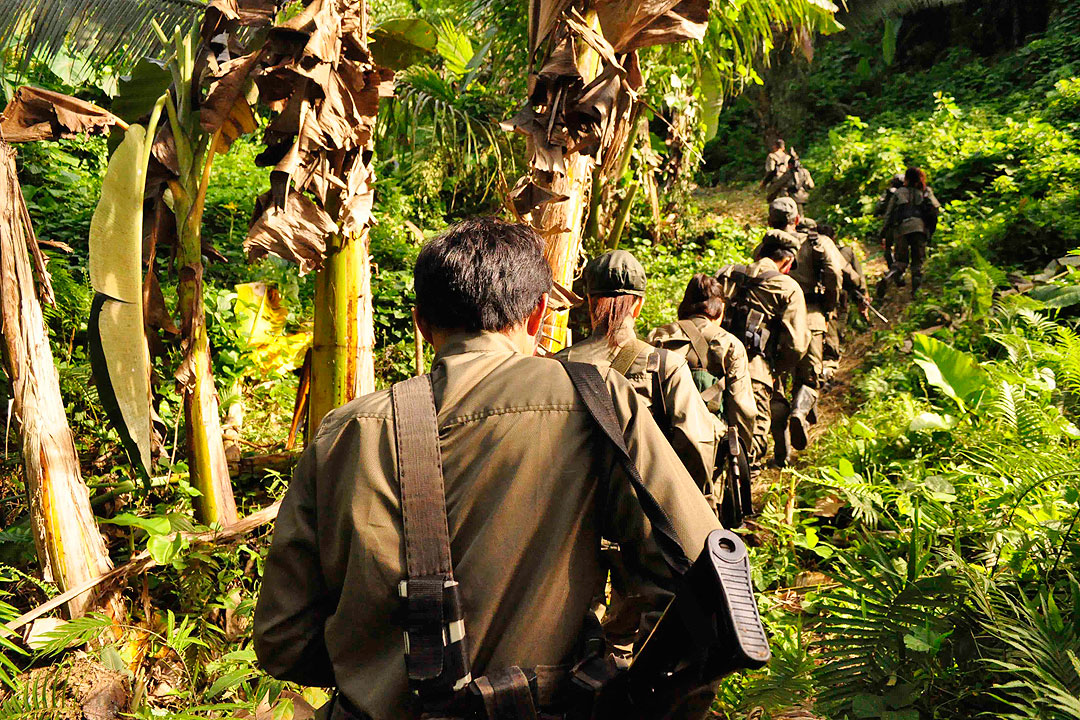Manila to continue anti-insurgency operations pending peace deal

By Kyle Aristophere T. Atienza, Reporter
THE Marcos government’s anti-insurgency operations will continue pending formal peace negotiations with Maoist leaders, according to a peace official.
“No preconditions and no ceasefire” have been agreed in the talks between the government and the National Democratic Front of the Philippines (NDFP), the President’s assistant peace adviser Wilben M. Mayor told a televised news briefing on Wednesday.
The peace talks are exploratory and not a continuation of previous negotiations, he added.
“This is a new discussion, a new dialogue. There are no preconditions,” he said in mixed English and Filipino. “We are starting new talks.”
In their joint statement in Oslo, Norway last month, the NDFP and Philippine government cited “serious socioeconomic and environment issues” and “foreign security threats” for agreeing to an end to their armed conflict.
The NDFP is a coalition of revolutionary groups that represents the Communist Party of the Philippines and its armed wing New People’s Army in negotiations with the government.
National Security Council Assistant Director Jonathan E. Malaya said public calls for the lifting of Philippine resolutions that designated the CPP-NPA-NDF as terrorists are premature.
“Lifting the terrorist designation, in our opinion, undergoes a process under the Anti-Terrorism Act and should be the result of a final peace agreement,” he told a separate news briefing by the state’s anti-communist task force.
“Therefore, if a final peace agreement is signed by both parties, the natural consequence of that is the lifting of the terrorist designation and amnesty to be granted to former rebels,” he added.
Vice-President Sara Duterte-Carpio, co-vice chairwoman of the anti-communist task force, on Monday called the peace talks an “agreement with the Devil.”
Her father, ex-President Rodrigo R. Duterte, and the Maoist movement were in the middle of discussing a comprehensive agreement on socioeconomic reforms when he unilaterally halted the peace talks in 2017.
The Comprehensive Agreement on Socioeconomic Reforms, which sought to establish a framework for policies on agrarian reform, rural modernization and national industrialization, has been the main agenda of the NDFP in its peace negotiations with the government.
Also included in the agenda of previous peace were respect for human rights and international humanitarian law, political and constitutional reforms and cessation of hostilities and disposition of forces.
At the time the peace talks were scuttled in 2017, the draft comprehensive agreement was close to being completed and approved by both parties, human rights group Karapatan said in a statement. “There were prospects for social justice and lasting peace.”
The New People’s Army has been waging one of the world’s longest-running insurgencies. It expanded under the dictatorial rule of the late Ferdinand E. Marcos, whose son and namesake is now the Philippine president.
Karapatan said efforts to resume formal peace talks between the parties should address issues that led to the “current dismal human rights situation in the Philippines.”
The government should pave the way for the release of all political prisoners, including detained NDFP consultants and staff, and address the weaponization of the law that suppresses political dissent, it said in a statement.
Karapatan said the government should abolish the National Task Force to End Local Communist Armed Conflict (NTF-ELCAC), which Mr. Duterte created through a 2019 presidential order.
Mr. Duterte had tagged critics and activists as communists. He launched a deadly war on drugs and insurgents, which domestic and international watchdogs said resulted in rampant human rights violations.
Meanwhile, NTF-ELCAC spokesman Joel Egco announced the end of their regular press briefing named “Tagged” due to positive developments in the peace negotiations with the NDFP. “This is going to be an exciting and valedictory episode of Tagged,” he said.



